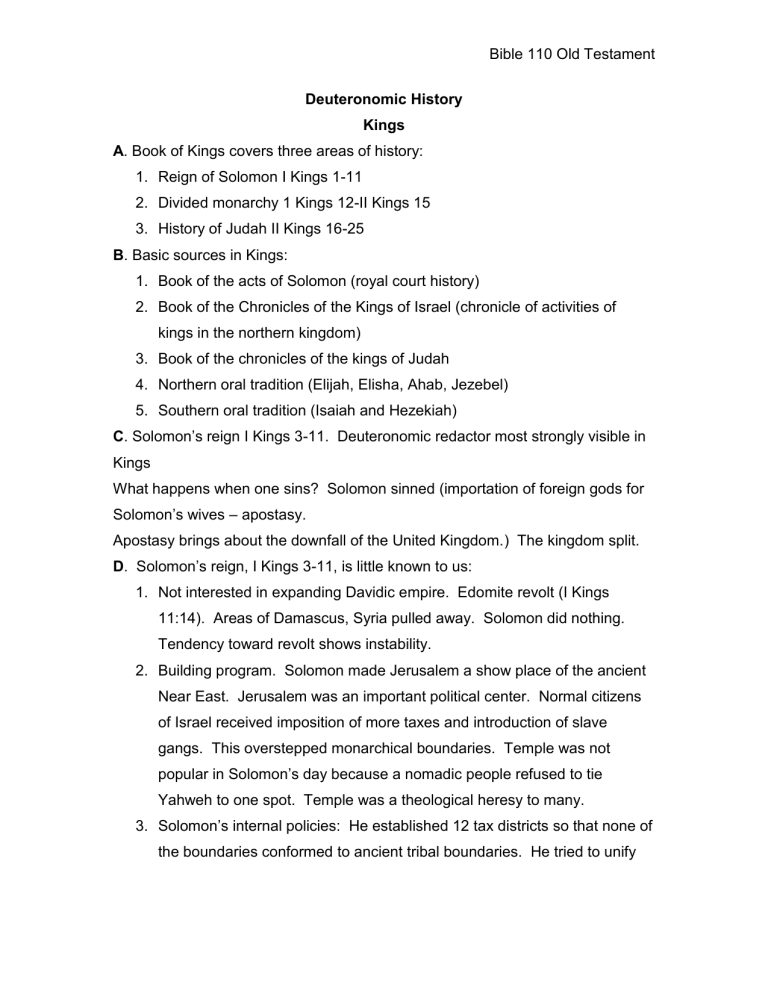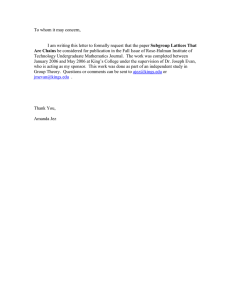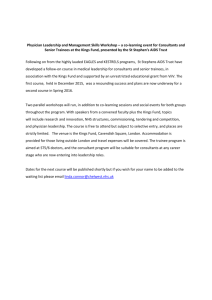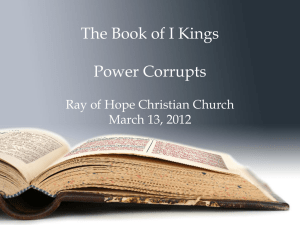Bible 110 Old Testament

Bible 110 Old Testament
Deuteronomic History
Kings
A . Book of Kings covers three areas of history:
1. Reign of Solomon I Kings 1-11
2. Divided monarchy 1 Kings 12-II Kings 15
3. History of Judah II Kings 16-25
B . Basic sources in Kings:
1. Book of the acts of Solomon (royal court history)
2. Book of the Chronicles of the Kings of Israel (chronicle of activities of kings in the northern kingdom)
3. Book of the chronicles of the kings of Judah
4. Northern oral tradition (Elijah, Elisha, Ahab, Jezebel)
5. Southern oral tradition (Isaiah and Hezekiah)
C . Sol omon’s reign I Kings 3-11. Deuteronomic redactor most strongly visible in
Kings
What happens when one sins? Solomon sinned (importation of foreign gods for
Solomon’s wives – apostasy.
Apostasy brings about the downfall of the United Kingdom.) The kingdom split.
D
. Solomon’s reign, I Kings 3-11, is little known to us:
1. Not interested in expanding Davidic empire. Edomite revolt (I Kings
11:14). Areas of Damascus, Syria pulled away. Solomon did nothing.
Tendency toward revolt shows instability.
2. Building program. Solomon made Jerusalem a show place of the ancient
Near East. Jerusalem was an important political center. Normal citizens of Israel received imposition of more taxes and introduction of slave gangs. This overstepped monarchical boundaries. Temple was not popular in So lomon’s day because a nomadic people refused to tie
Yahweh to one spot. Temple was a theological heresy to many.
3. Solomon’s internal policies: He established 12 tax districts so that none of the boundaries conformed to ancient tribal boundaries. He tried to unify
Bible 110 Old Testament the kingdom and destroy the amphictyony and its faith. He alienated its subjects, and the kingdom split when he died.
4. In Jerusalem the dynastic principle was fixed. Rehoboam would step in to the kingship. Jeroboam came out of exile in Egypt to become the first northern king. Solomon only put the icing on the cake in the split. Israel was never really unified at all. Only David’s personal genius kept the kingdom together.
E . Divided Monarchy
1. Deuteronomic historians have taken liberties with the divided monarchy by being selective in the materials they include, e.g. Omri only gets 5 verse treatment
2. Sin = judgment Repentance = salvation is carried on
3. Eight fold stereotype form in dealing with Kings
1. Date of ruler
2. Place of residence
3. Length of his reign
4. Evolution of his theological position
5. Name of king
’s mother and his age at ascension (southern kings only)
6. Footnotes to the Chronicles of the Kings of Israel and Judah
7. Death and Burial
8. Name of successor
(e.g. I Kings 14:21-22; 29-31)
2. Kings are judged by their theological posture. Northern kings are judged by the fact that they do not worship at Jerusalem (10:24-29). Northern
Deuteronomic history has merged with Jerusalem and the Davidic line. Southern history was no better than the northern history. Only two southern kings receive any praise – Hezekiah and Josiah. Judgment is always in relation to David.
Yahweh forbears judgment because of the Davidic covenant (11:13). Amaziah and Ahaz are judged negatively because they did not walk in relation to David.
Bible 110 Old Testament
As the end of the southern kingdom there was one ray of hope for the Davidic line that Jehoiachin was released from prison.
3. Deuteronomists made the connection between the Mosaic tradition and the
Davidic tradition. II Kings is the end of the Deuteronomic history. It demonstrated the “why” of the exile: theological interpretation. Deuteronomists use prophecy – fulfillment (I Kings 12:15) to show the judgment to be a result of sin.
4. Theology and politics in northern and southern kingdoms
Southern: lasted 350 years after schism with stability. Davidic line provided the stability (Queen Athaliah broke the line), fidelity to the dynastic principle and to
Zion traditions.
Northern: Eight revolutionary changes of ruler or dynasty in 200 years. Rejected dynastic principle in form of elective, charismatic, or prophetic method
(Jeroboam, Baasha, Zimri) Omri established a short-lived dynasty; Prophet
Elisha destroyed this line. Kingdom was based on revolution by the will of God.
Israel was doomed from the outset. Jeroboam, needing to give his monarchy a theological foundation, set up golden calves.
Jeroboam I set up rival cultic foundation for the north. Rival shrines at
Dan and Bethel; temple in Samaria; rival priesthood; new festivals. Golden bulls set up were abomination to the Deuteronomist. Those were probably not idols or an introduction of fertility religion but may hearken back to Jacob. Bull becomes a means of Yahweh’s mobility. Deuteronomic history gives distorted picture of northern kingdom. North is more Yahwistic and Mosaic than south.




